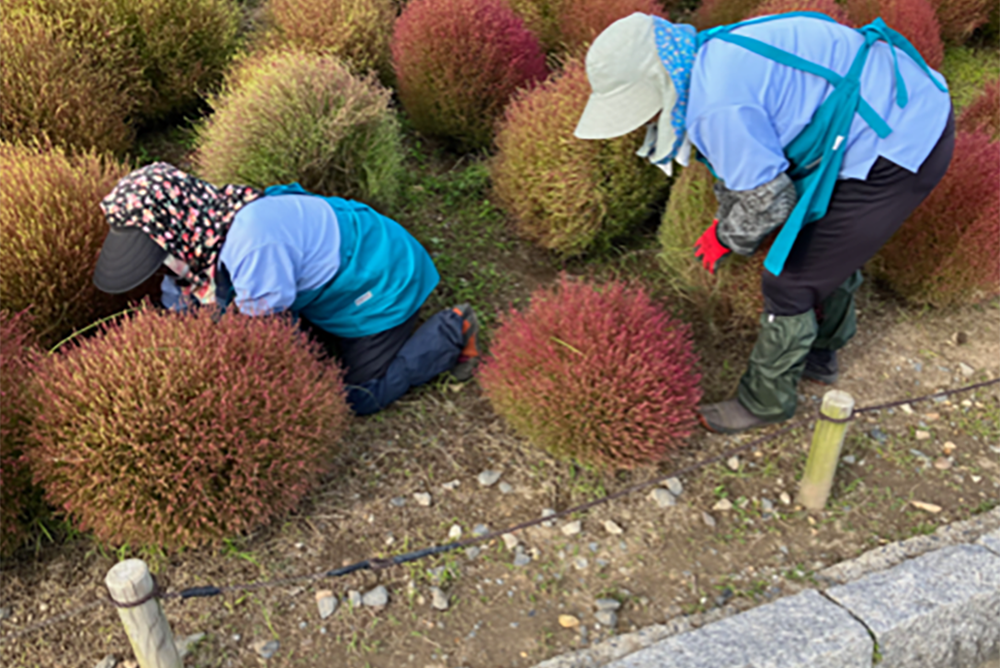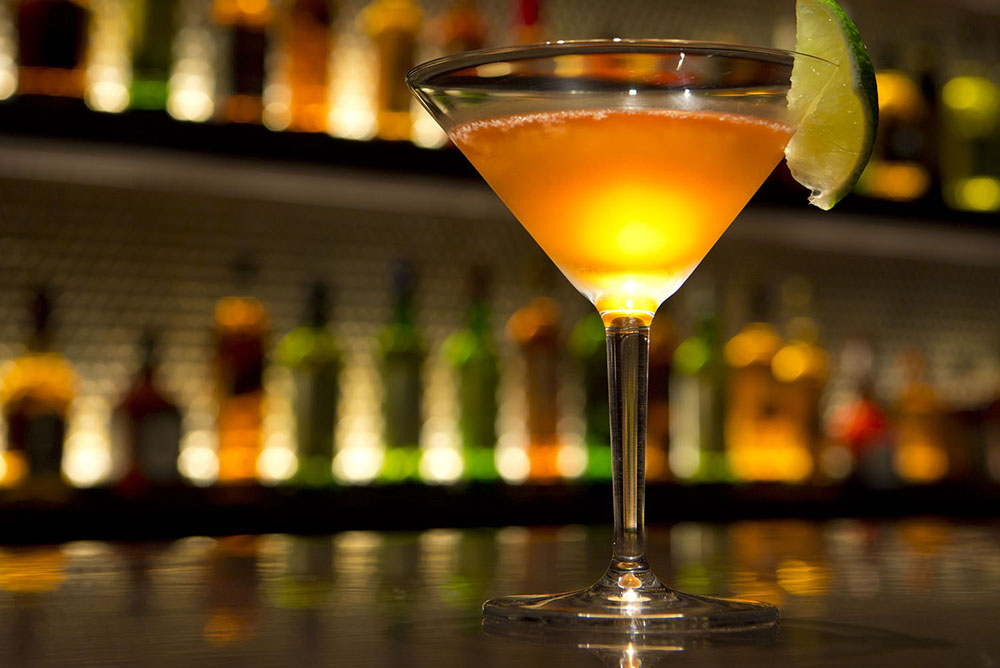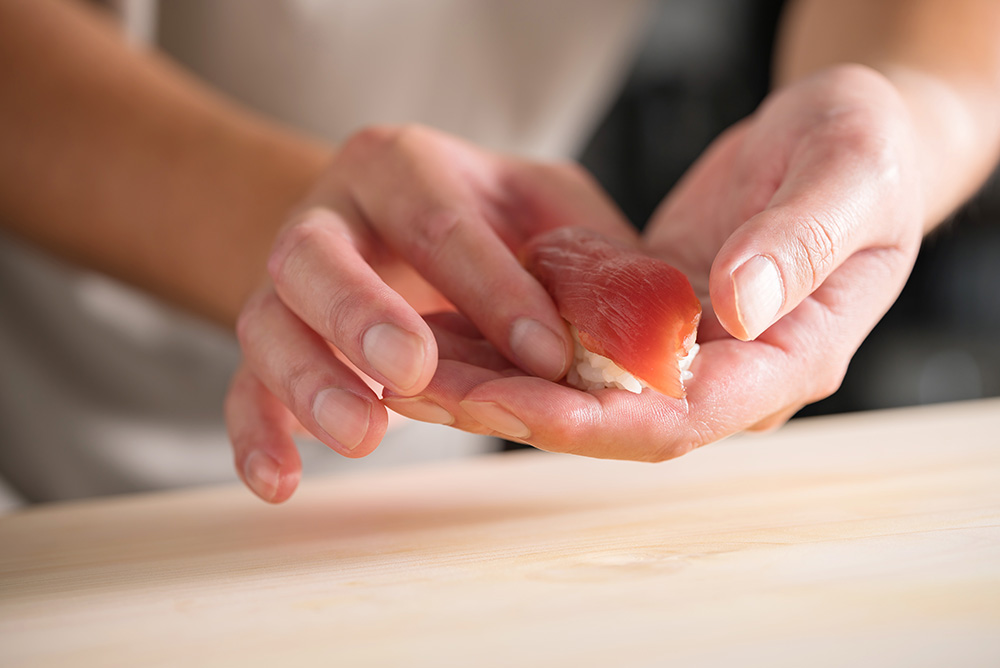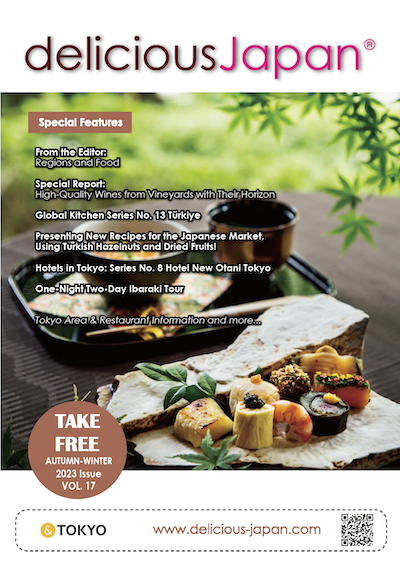
Global Kitchen Series No. 1 - Poland
Ms. Żurawska, you speak Japanese very fluently. Please tell us about your fi rst encounter with Japan and your current career at the Embassy.
 Poznań and Shimane University. After graduation, I continued my education on postgraduate study courses in the field of diplomacy, international law, and foreign policy. I’ve always had two fields of interest: Japan (language, culture, design, lifestyle, and art) and diplomacy. Since I serve at Polish Cultural and Information Center at the Embassy of the Republic of Poland in Japan, my current mission is to promote Polish culture to the Japanese audience. I believe there are many fields of Polish culture that the Japanese can be interested in. At the same time, I am conscious that there is still so much to do in this area, since Japanese people know quite a lot about Chopin, Polish music, and film, but not much about art, design, lifestyle, cuisine and other fields of Polish culture.
Poznań and Shimane University. After graduation, I continued my education on postgraduate study courses in the field of diplomacy, international law, and foreign policy. I’ve always had two fields of interest: Japan (language, culture, design, lifestyle, and art) and diplomacy. Since I serve at Polish Cultural and Information Center at the Embassy of the Republic of Poland in Japan, my current mission is to promote Polish culture to the Japanese audience. I believe there are many fields of Polish culture that the Japanese can be interested in. At the same time, I am conscious that there is still so much to do in this area, since Japanese people know quite a lot about Chopin, Polish music, and film, but not much about art, design, lifestyle, cuisine and other fields of Polish culture. We understand that “Eat Poland” project is going on in Poland. Can you explain what it is all about?
Eat Poland project was created to promote Polish food products as our culinary tradition. We show the modern side of the Polish gastronomy, well-educated and ambitious chefs, places that serve food at the highest level as well as the high-quality products and their manufacturers, who are increasingly proud of and highlight their origins promoting production methods of the delicacies typical for our country.
http://eatpoland.net/en/http://eatpoland.net/en/
Eat Poland is about promoting modern Polish cuisine that are based on traditional dishes, using original Polish products. The project consists of organizing a diner for invited guests, placed in any outstanding building or institution in the city or country where the project is realized.
Was Polish cuisine influenced by other countries, or has it developed independently in its own style?
For example in eastern Poland there are dishes very similar to Belarus, Ukraine, and of course Russia. Generally, we have some dishes that are almost the same including barszcz (soup), pierogi (dumplings), and pancakes that are also popular in Eastern European countries.
Also, we have some special Polish-Jewish cuisine. Probably, not many people know that the very famous bagel was originally made by Polish Jews living in Cracow, who after the Second World War emigrated to the United States and popularized it there. So bagel comes from Cracow, Poland.
What are the basics or essence of Polish cuisine?
Polish traditional cuisine is based on various kinds of meat but also vegetables and fruits. Since autumn and winter in Poland are long, we have a lot of soups that warm us up during cold days. Nowadays, Polish modern cuisine has developed greatly with some influence of countries from both East and West, but still with old tradition, using original Polish products.
Polish vodka and Żubrowka are well known in Japan. Polish beer is also exported to Japan. Could you tell us about Polish alcoholic beverages in general?
Poland is well known for its vodka, but most Poles drink much more beer than vodka. We have many beers with long year tradition, like Żywiec, Lech, Warka, Tyskie.
What do you think about the match of Polish alcohol with "washoku"?
Polish beer can be easily paired with washoku. Vodka would go well with yakiniku or maybe hormone-yaki.
Do you like Japanese cuisine? What kind of food do you like?
I love Japanese cuisine! I love fish, seafood, tofu, miso, sesame, and the sweet taste of Japanese dishes. I usually choose miso ramen, dishes with miso paste, but also like soba and other noodles. I like Japanese pickles, too! Yummy!
Major food manufacturers like Ajinomoto and Kewpie are now entering the Polish market. Is Japanese food popular in Poland?
Yes, for sure. We have many sushi bars, but that’s not the only choice. Since UKI-UKI Udonya opened in Warsaw two years ago, udon became very popular in Poland. Also, ramen and other dishes are well known and Poles love the Japanese taste. I wish we could have a real “shokudou” in Warsaw with typical “washoku teishoku”.





